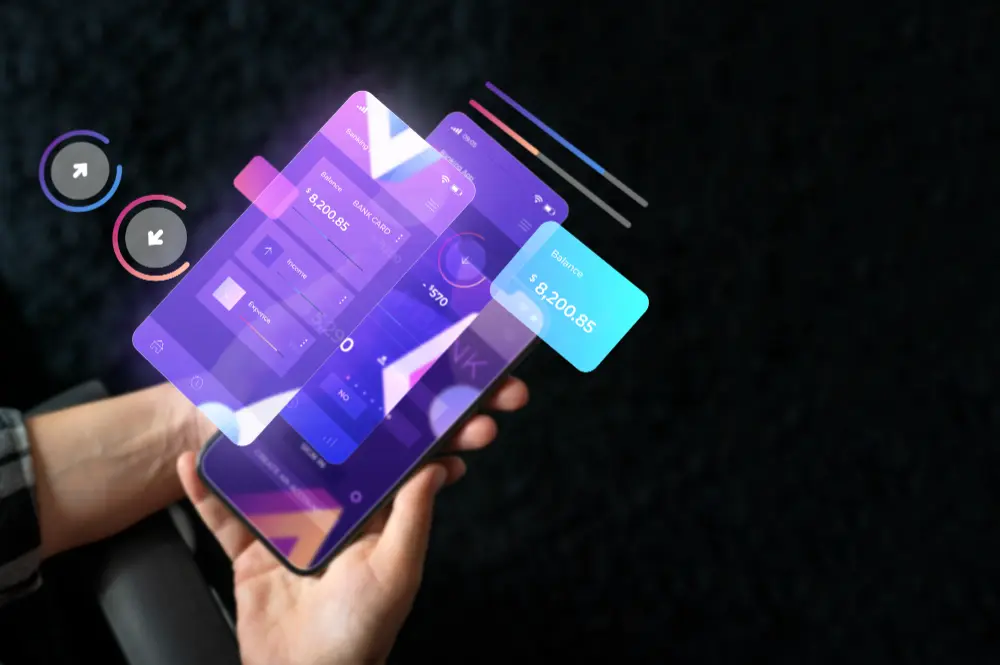
How Big Data is Changing the Healthcare Industry?
27 February 2019
Designing Your Brand
1 March 2019

Published by
BluePi
Data-Driven Business Transformation
Importance of MVP in Mobile App Development
MVP in Mobile App Development
According to the Statistics Portal, Google Play Store allows Android users to choose from over 2.1 million apps, whereas the Apple App Store allows iOS users to choose from almost 2 million available apps. Each enterprise needs to focus on building a unique product to make the mobile app stand out of the crowd. The app must be designed with unique features and based on latest mobile app development trends to keep users engaged and beat completion.
Also, the enterprise has to explore ways to offer the mobile app to users faster than their competitors. The conventional mobile app development approaches do not help developers to deliver a unique mobile app rapidly. That is why; a consistent increase is being noted in the number of mobile app developers switching to a feedback-driven app model – Minimum Viable Product (MVP). Unlike conventional approaches, MVP helps businesses to reduce both mobile app development time and cost.
MVP emphasizes on developing a mobile app with features that are unique and essential. But it requires businesses to involve real users in the development process and improve the mobile app based on the real-time response of users. After developing the initial compact version of the app, the businesses need to make the base model available to real users. The real-time responses of users help businesses to validate the app idea and optimize the app’s user experience.
5 Ways MVP Helps Businesses to Develop and Release Unique Mobile Apps Early
1. Understand Customer Preferences and Expectations
No enterprise can make its mobile app popular and profitable without understanding and meeting customer expectations. There are many instances when users reject some of the features included in the full app version. MVP requires businesses to getting the unique and essential features of the app evaluated by real users. It even allows the developers to provide real users with a variety of features and options. Hence, it becomes easier for businesses to understand and meet customer expectations.
2. Deploy and Manage Resources Efficiently
The developers these days have the option to write the same app in a number of programming languages and using a variety of development tools. Hence, businesses often find it daunting to build a mobile app with the right technologies. MVP enables businesses to get the app’s unique and essential features reviewed by real users. The opinions and suggestions of real users help the business to assess the actual performance of the app’s compact version. The user feedback also helps developers to helps developers to address various issues and defects using the right technologies.
3. Enhance the App’s Functionality and Security
Often users uninstall mobile apps due to bugs and security issues. They even expect the app to function and perform optimally under varying conditions. Many enterprises these days opt for crowdsourced testing or crowd testing to get the software’s functionality, performance, accessibility, usability, and security evaluated under varying user conditions. MVP helps businesses to improve the mobile app’s features, performance, and security based on real-time user response. The early detection of bugs and defects also help developers to repair the flaws quickly
4. Improve User Experience and Engagement
The businesses can beat the competition by developing mobile apps with unique features. But they cannot persuade users to use the app regularly without improving user experience consistently. They need to update the mobile app at regular intervals to boost user experience and engagement. MVP helps businesses to update mobile apps according to changing user preferences and emerging trends. Leading tech companies like Facebook, Uber and SnapChat already leverage MVP to improve app quality and an increasing number of active users. A business can use MVP as a powerful tool to keep the mobile app relevant and competitive in the long run.
5. Reduce Development Time and Cost
In addition to improving app quality, MVP also help businesses to reduce both mobile app development time and cost. The approach enables businesses to build a compact version of the app. Hence, the developers are not required to work only on essential and unique features. They can further add new feature and change existing features based on user response. They can further accelerate mobile app development by not working on additional features that users do not need. Many small businesses and start-ups these days take advantage of MVP to launch mobile apps by overcoming constraints related to time, money, and resources.
As a feedback-driven app development model, MVP helps businesses to accelerate the release of mobile apps with unique features and based on latest trends. The approach emphasizes on getting the initial compact version the app reviewed and evaluated by real users. The real-time responses help businesses to build outstanding mobile apps without increasing development time and cost.
About the Author

Published by
BluePi
Data-Driven Business Transformation

Published by
Sidhant Arora
Marketing Manager
With 8+ years of brand and marketing expertise, Sidhant has empowered 50+ businesses across industries. His passion lies in crafting impactful 360° strategies that seamlessly blend storytelling and targeted campaigns, guided by data-driven insights. He sculpts compelling narratives that resonate with target audience crafting focused campaigns to expand brand presence across digital, offline, and PR channels to unlock their full potential.






























